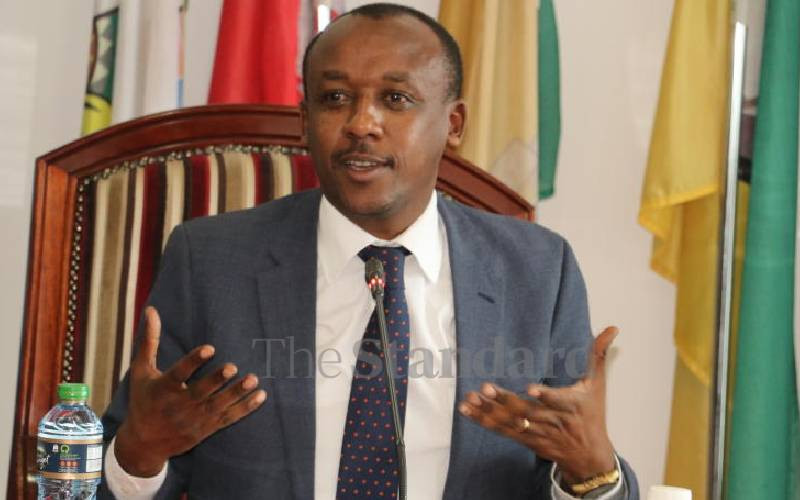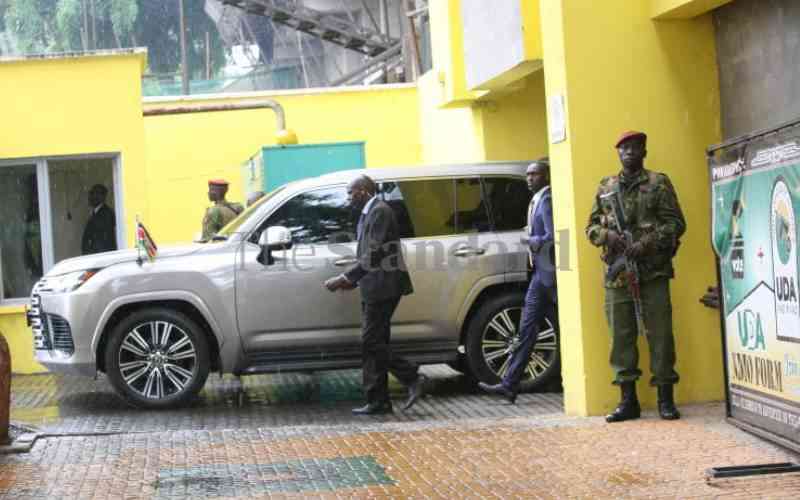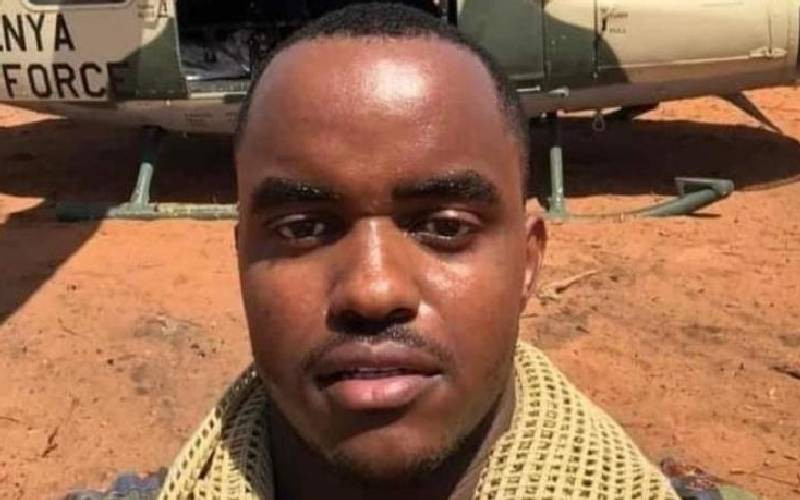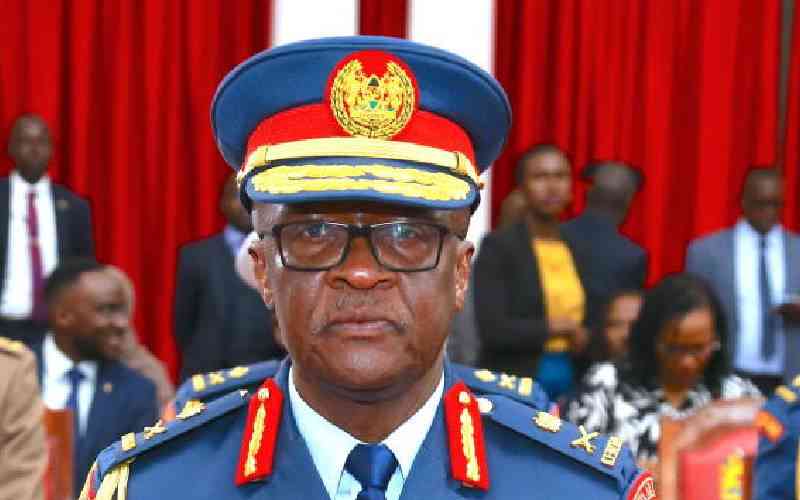As the August General Elections draw closer, a key vote is hanging in the balance: the youth vote. Youth bring energy, vibrancy and excitement to political campaigns and politicians have been working to entice this key demographic.
According to the 2019 population census, Kenyans under the age of 35 years comprise 75 per cent of the country’s 47.6 million population. However according to data from the Independent Electoral and Boundaries Commission (IEBC) final register, Kenyans aged between 18-35 registered to vote dropped by 5.2 per cent compared to 2017.
Unfortunately, with so many of them apathetic to politics, vote-hunting efforts are underway to engage these youth.
During the voter registration exercise, most youth expressed disappointment in the economic situation in the country and their general lack of interest.
Despite the use of sports events, loud blaring music from entertainment caravans, social media campaigns and catchy tunes, youth often remain generally undecided until the last few days.
Now with campaigns at fever pitch, one more tactic which was popular in previous elections is expected to be deployed to either entice or tranquilise the youth: alcohol.
According to Anita Njeri, a human rights champion in Othaya town, security and anti-drug agencies need to protect the youth from being exploited using alcohol.
“If you go around rural shopping centres, you will find idle youth being given as little as Sh200 which they use to buy alcohol. They end up binge drinking throughout the day as they sing the praises of that politician,” she said.
She said one of the challenges with this trend is that the youth end up regularly having funds to consume cheap liquor and it becomes both a tool for campaigns and enticement for this demographic.
“Many politicians know that if they want to either attract the youth voters or stupefy their opponents’ youth supporters, they just need to buy them alcohol the day before elections,” she said.
It is a strategy that sees many youth too intoxicated to participate in the election or easier to manipulate.
Cyrus Githaiga,36, a recovering addict and rehabilitation counsellor, was swept up in the wave of political campaigns in 2013, and his experience left him in hospital nursing serious injuries.
“When it comes to youth peer pressure, social drinking is the norm. When you add the political campaigns, you have politicians who only know how to entice youth using cheap thrills,” he says.
In his own experience, he used to receive Sh200, which was a lot of money to sustain his addictions.
“It was enough money at the time because a roll of marijuana was Sh30 and a packet of ‘muguka’ was Sh50, while chang’aa was as cheap as Sh100,” he says.
He said at the time, they felt it was cool and excited, but the end result is that many of them were left desolate and disappointed as all the promises were not fulfilled.
The father of two says at the time, his lowest point on the campaign trail was when he was injured while chasing one of the politician’s cars in a motorcade. He fell and had to stay home for two weeks nursing his injuries.
“I was hospitalised, and injured and the politicians I was chasing for Sh200 didn’t even know my name or come to check on me. I never saved or invested that money I used to chase, it was bad,” he says.
According to Githaiga, many youth use the money they receive from politicians to go drinking regularly.
“Every politician wants to be elected and most of them are desperate to be elected to office and this becomes heightened during this campaign period,” he says.
He notes that after elections, politicians forget about the youth, leaving them jobless and likely addicted to alcohol.
Githaiga says politicians should use social programmes and income generating projects to benefit the youth instead of bribing them with alcohol.
“As survivors of alcoholism, we end up worse off when we are left behind by the political waves, ravaged by diseases,” he says.
Githaiga also points out the link between the use of alcohol to mobilise and hooliganism in campaign meetings, stating that youth are given alcohol so that they can be disruptive in rallies.
“Politicians know that if their supporters are intoxicated they will either heckle their opponent or cheer louder for their benefactors,” he says.
Addiction counsellor Nderitu Gikaara says youth are a vulnerable group because they have developing brains and social peer pressure can easily lead to addition.
He says many youth interactions with drugs start with experimentation and then socialisation before ending up chasing these experiences.
However, he says these small amounts of money are unaccounted for and unchecked which allows for misuse.
“I have observed that the flow of money during this campaign period is not as free as it was in previous elections, which is a good thing but also makes youth very desperate for it,” he says.
According to Gikaara, addiction in youth is more difficult to curb because their mental acuity is not as developed as for more mature people.
“At that age, young adults want to numb their emotions and failures as they have social pressure and expectations weighing on them,” he says.
Gikaraa feels that there is a difference between problem drinking and addiction which takes years to progress and take root in one’s life.
National Authority for the Campaign Against Alcohol and Drug Abuse (NACADA) Authority Central regional manager Amos Warui says the institution has focused its programmes towards fighting alcohol and drug abuse during the campaign period. Warui reveals they are focusing on sensitisation of the community and the youth during this period through meetings and peace campaigns
“We have sensitisation programmes alongside other agencies such as National Government Administration Officers, on the dangers of drug and alcohol abuse,” he says.
He also states that NACADA has been working alongside the National Cohesion and Integration Commission (NCIC) on peace caravans targeting the youth across the country to foster peaceful elections.
Warui says there are active campaigns on social media and radio stations to discourage alcohol and drug abuse among the youth, adding that the agency also has partnerships with churches to carry out meetings and youth talks on the dangers of alcohol abuse.
 The Standard Group Plc is a
multi-media organization with investments in media platforms spanning newspaper
print operations, television, radio broadcasting, digital and online services. The
Standard Group is recognized as a leading multi-media house in Kenya with a key
influence in matters of national and international interest.
The Standard Group Plc is a
multi-media organization with investments in media platforms spanning newspaper
print operations, television, radio broadcasting, digital and online services. The
Standard Group is recognized as a leading multi-media house in Kenya with a key
influence in matters of national and international interest.
 The Standard Group Plc is a
multi-media organization with investments in media platforms spanning newspaper
print operations, television, radio broadcasting, digital and online services. The
Standard Group is recognized as a leading multi-media house in Kenya with a key
influence in matters of national and international interest.
The Standard Group Plc is a
multi-media organization with investments in media platforms spanning newspaper
print operations, television, radio broadcasting, digital and online services. The
Standard Group is recognized as a leading multi-media house in Kenya with a key
influence in matters of national and international interest.








